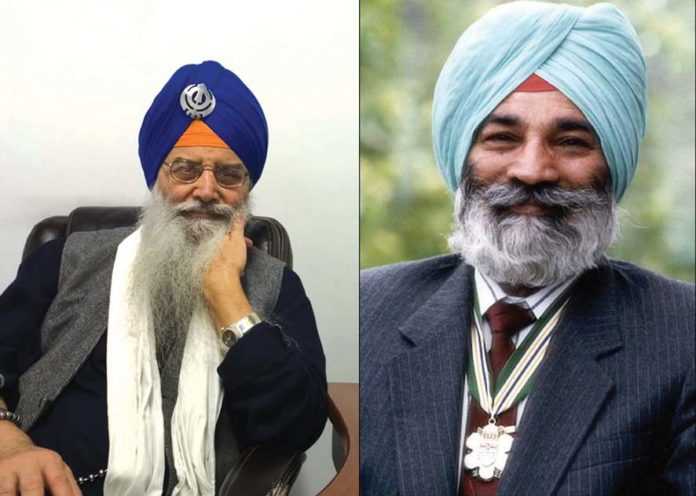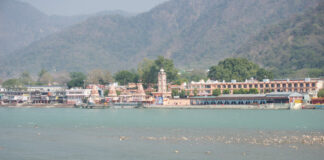The assassination of Malik, who was once an accused for bombing the Air India Kanishka flight, has similarities to the killing of Indo-Canadian Times editor Tara Singh Hayer
Web Desk
VANCOUVER: Though the two suspects have been arrested for the murder of Ripudaman Singh Malik, we never know who hired these hitmen and why.
Ripudaman Singh Malik, once an accused in the Air India bombing, was gunned down near his business office in Surrey on the morning of July 14.
Tanner Fox, 21, and Jose Lopez, 23, were arrested by The Integrated Homicide Investigation Team on the basis of tips from the public and charged with killing Malik. They have a criminal past.
Malik – along with Ajaib Singh Bagri of Kamloops – was an accused in the bombing of Air Indian Kanishka flight 182 in June 1985 off the Irish coast, killing all 329 people on board.
Another bomb went off at Tokyo’s Nartia Airport an hour later the same day, killing two baggage handlers.
Both Malik and Bagri were acquitted in 2005.
The killing of Malik sounds eerily similar to the gunning down of Indo-Canadian Times editor Tara Singh Hayer in Surrey in November 1998.
Both men had similar life trajectory. They both came as young immigrants and became hugely successful – Hayer a newspaper owner and Malik a businessman.
Both men once supported militants, then switched their loyalties and perished in a similar fashion.
They both was once linked to Babbar Khalsa founder Talwinder Singh Parmar.
Parmar was named the mastermind in the Air India bombing by the John Major public inquiry ordered by the Canadian government.
“Talwinder Singh Parmar was the leader of the Babbar Khalsa, a pro-Khalistan organisation at the heart of radical extremism, and it is now believed that he was the leader of the conspiracy to bomb Air India flights,” said the report by retired Canadian Supreme Court justice John Major in June 2010.
Malik, whom former British Columbia Premier Ujjal Dosanjh knew from early 70s and described him as “a ganja-smoking hippie who had a ponytail”, came under police scanner as he became a suspect in the plot to place two suitcase bombs on two Canadian Pacific flights from Vancouver airport.
These bombs were to be transferred to India-bound Air India flights at Toronto and Narita airports. The bombs were timed to go off at a particular time – one at Heathrow airport in London and another on Air India Flight 301 from Narita (Tokyo) to India.
But since the Air India flight from Toronto got delayed in Canada, the bomb planted on it exploded mid-air at 31,000 feet off the Irish coast.
Parmar was the first person to be arrested in November 1985 for the Kanishka bombing. But he was freed two months later for lack of evidence. In June 1986, he was arrested again and spent 11 months in jail before being released again.
In 1988, Parmar fled Canada to reach Pakistan where he reportedly admitted his role in the bombing of Kanishka to the Babbar Khalsa leaders, according to the book ‘Rivers on Fire — Khalistan Struggle’ by Chandigarh journalist Jagtar Singh. He was later killed in an encounter with police in India in 1992.
Back to Ripudaman Singh Malik and Tara Singh Hayer and their links to Parmar.
While Malik donated money to Babbar Khalsa which was not banned in Canada at that time, Tara Singh Hayer praised Parmar in his newspaper Indo-Caadian Times and also wrote a book on Jarnail Singh Bhindranwale: Mahan Shakshiat Sant Jarnail Singh Khalsa Bhindranwale (Saint Jarnail Singh Khalsa Bhindranwale: A Great Personality).
But Tara Singh Hayer later turned against militants, ostensibly over the killing of innocent people. As he distanced himself from hardliners, Hayer gave an affidavit to the Royal Canadian Mounted Police in 1985, detailing how he had overheard Ajaib Singh Bagri telling London paper Des Pardes publisher Tarsem Singh Purewal about getting the bomb (meant for Air India) to the airport.
While Purewal was murdered in London in 1986, Hayer was crippled in an attempt on his life in 1988.
Just before the crippling attack on him, Hayer had written in his newspaper Indo-Canadian Times: “In 1985 in England, Bagri was talking noisily about his involvement in the blowing up of the Air India airplane …”
Ten years later when Hayer was gunned down in the garage of home on 18,1998, Hayer was reportedly willing to become a Crown witness in the Air India case.
Malik too met a similar fate on July 14, 2022, as he was coming to his office in the morning. Having spent five years in jail and getting acquitted in the Air India bombing case, he to distanced himself from the militant ideology after his release in 2005.
After lying low for many years, Malik visited India in 2019 after the Modi government deleted black lists of Sikhs abroad suspected of anti-Indian activities.
In January 2022, he wrote a letter to Prime Minister Modi, expressing “heartfelt gratitude for the unprecedented positive steps taken by yourself to redress long-reading Sikh demands and grievances including elimination of blacklists that restricted visit to India of thousands of Sikhs living abroad, grant of passports and visas to asylees and their families, reopening of hundreds of 1984-riots closed cases leading to conviction and jail term for some, declaring 1984-riots as ‘genocide’ by then Home Minister Shri Rajnath Singh on the floor of the House, giving compensation or Rs. 5.00 lakh per family of the anti-Sikh genocide victims, [and] opening of Sri Kartarpur Saheb Corridor facilitating pilgrims from India to visit the revered place of our first Master Guru Nanak Dev Ji.”
It is being whispered that Malik’s letter didn’t go down well with some hardliners in his community.
Malik also go embroiled in a controversy over the publication of the Sikh scripture of Guru Granth at his Surrey office. While Malik said he wanted to make the holy book readily available, those opposed to it said mischievous elements could change the holy text.
Was he targeted for writing to the Indian Prime Minister or publishing the holy scripture in Canada? Only the suspected hitmen, if found guilty, can reveal the names of the plotters.








